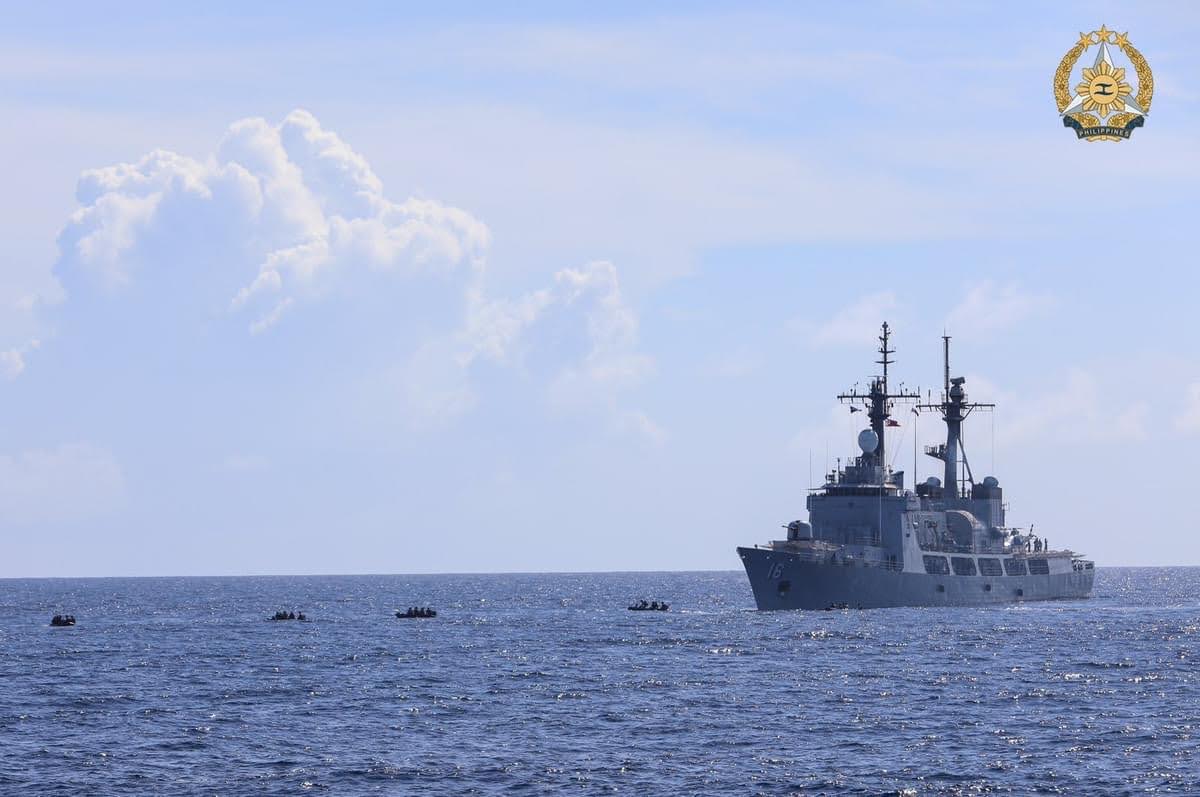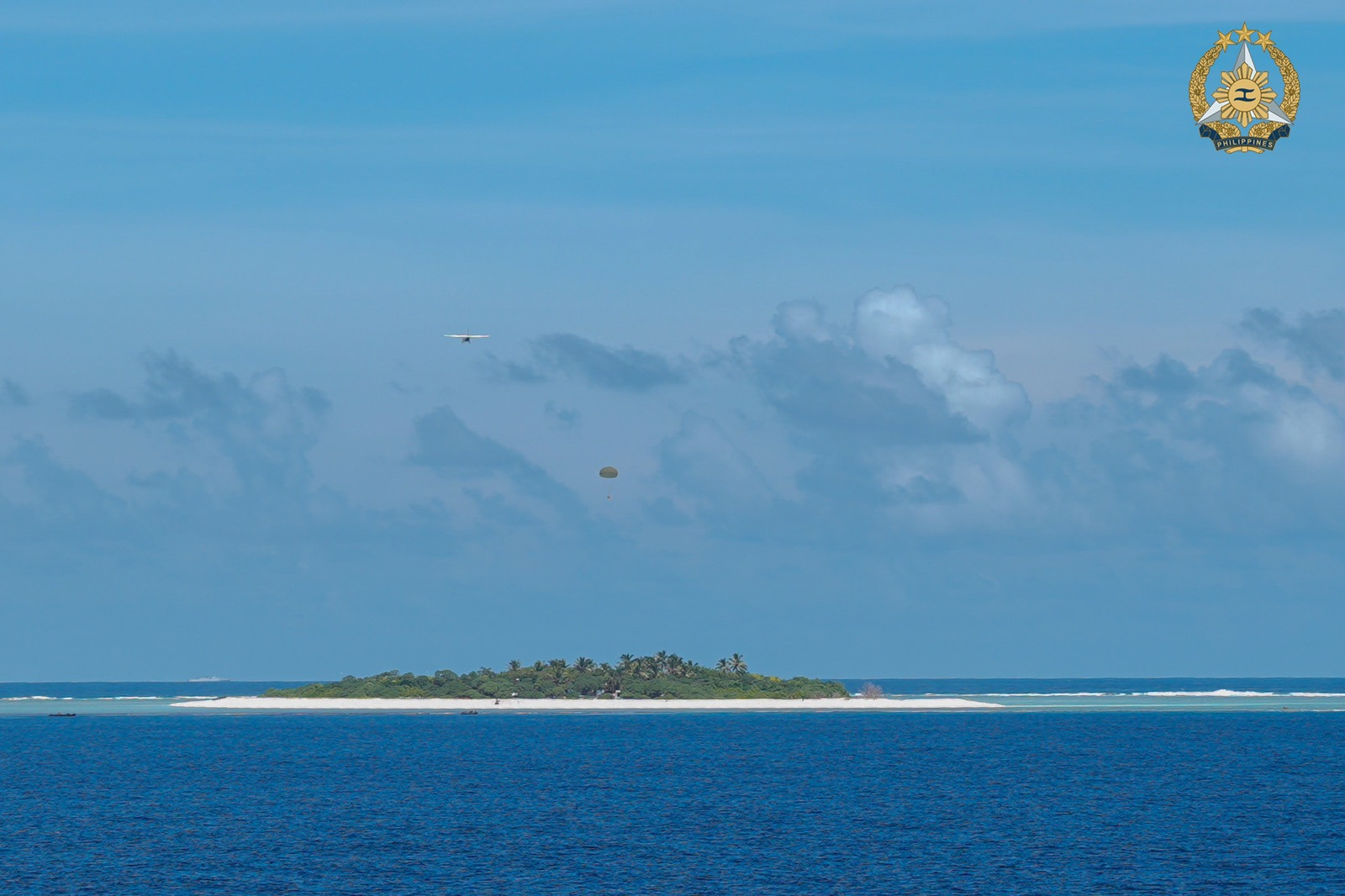Philippine Forces Rehearse Island Seizure in South China Sea
November 7, 2024 4:47 PM

Supported by gunboats and a former U.S. Coast Guard cutter, Philippine Navy SEALs and Marines approached a South China Sea island owned by Manila in a simulated seizure drill as Chinese forces observed from afar on Wednesday.
Armed Forces of the Philippines Chief of Staff Gen. Romeo Brawner and other high-ranking officers observed the exercise, among the most intense that Manila has held in the disputed waters, from the bridge of BRP Ramon Alcaraz (PS-16). Four rigid-hull inflatable boats transported members of Naval Special Operations Unit 4 and the 61st Force Reconnaissance Company to Loaita Island. Known to the Philippines as Kota, and to China as Nányào Dǎo, the island is one of the Philippines’ few possessions in the South China Sea. The island is home to a small Philippine Navy personnel detachment that monitors the surrounding waters and is administered under the Kalayaan municipality of the province of Palawan.
Two new Israeli-built Acero-class fast patrol gunboats, BRP Domingo Deluana (PG-905) and BRP Lolinato To-Ong (PG-902), and a helicopter supported the landing activity. A Philippine Air Force transport aircraft also air dropped supplies. Chinese warships shadowed the drills, with ABS-CBN News reporting the presence of at least two vessels. Brawner told reporters that this was expected, and noted their presence added “realism” to the drills.
Philippine Forces Rehearse Island Seizure in South China Sea
November 7, 2024 4:47 PM

Supported by gunboats and a former U.S. Coast Guard cutter, Philippine Navy SEALs and Marines approached a South China Sea island owned by Manila in a simulated seizure drill as Chinese forces observed from afar on Wednesday.
Armed Forces of the Philippines Chief of Staff Gen. Romeo Brawner and other high-ranking officers observed the exercise, among the most intense that Manila has held in the disputed waters, from the bridge of BRP Ramon Alcaraz (PS-16). Four rigid-hull inflatable boats transported members of Naval Special Operations Unit 4 and the 61st Force Reconnaissance Company to Loaita Island. Known to the Philippines as Kota, and to China as Nányào Dǎo, the island is one of the Philippines’ few possessions in the South China Sea. The island is home to a small Philippine Navy personnel detachment that monitors the surrounding waters and is administered under the Kalayaan municipality of the province of Palawan.
Two new Israeli-built Acero-class fast patrol gunboats, BRP Domingo Deluana (PG-905) and BRP Lolinato To-Ong (PG-902), and a helicopter supported the landing activity. A Philippine Air Force transport aircraft also air dropped supplies. Chinese warships shadowed the drills, with ABS-CBN News reporting the presence of at least two vessels. Brawner told reporters that this was expected, and noted their presence added “realism” to the drills.

“This exercise marks a significant step in strengthening our national defense capabilities and ensuring that we are prepared to defend our sovereignty and sovereign rights. Today, our forces demonstrate the unwavering commitment to protecting the West Philippine Sea and our nation’s future,” Brawner said in a news release following the drill.
On Monday, 3,000 personnel from the Philippine Army, Air Force and Navy kicked off this year’s iteration of the joint Dagat-Langit Lupa exercise. As the country shifts from internal security to territorial defense operations, joint service drills have intensified in scope and scale at strategic locations throughout the Philippine archipelago. The Dagat-Langit Lupa series of exercises usually occur in Luzon, the largest Philippine island that borders the South China Sea and Luzon Strait, and the westernmost province of Palawan.
Previous iterations of the exercise have only seen Philippine forces rehearse island seizure drills notionally, with Marines landing on Palawan beaches. While the Philippine Navy used to be able to conduct large-scale landing drills in the area during the 1990s, a focus on counterinsurgency operations sapped the service up until the 2010s, as the country began to modernize its forces amid tensions with China.





